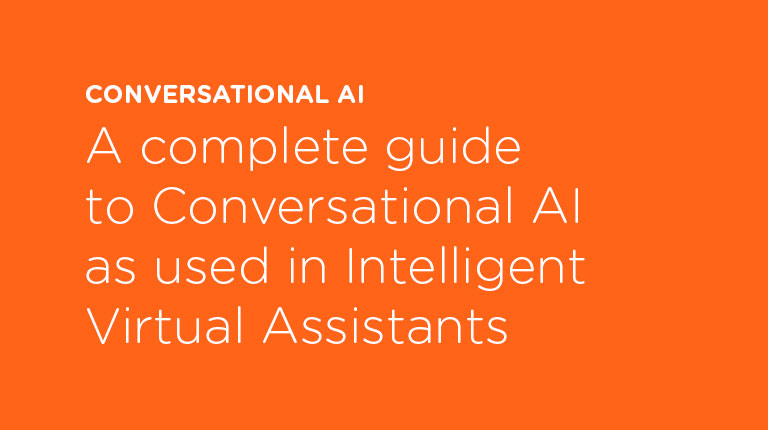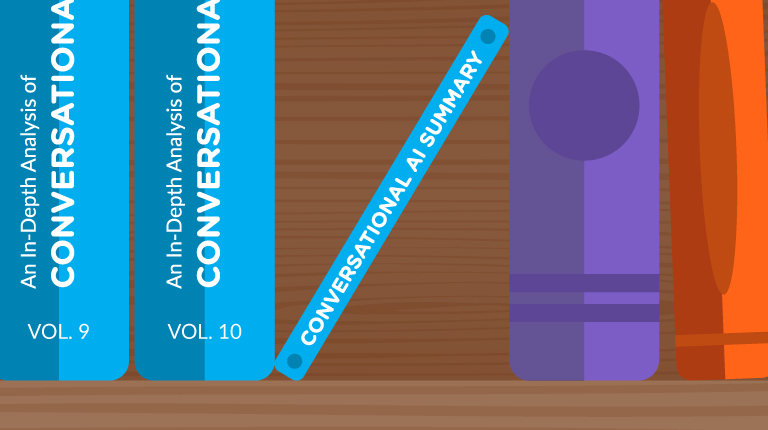There was a point when the term AI conjured thoughts of Terminator and murderbots that took over the world. Today, there’s a resurgence of the term, but times have changed. Now, for many people, the initial image is that of helpful appliances, friendly robots, self-driving cars, wearables, and automated dog walkers. It seems sprinkling in the term AI makes many common things suddenly edgy or worthy of attention. But do we all mean the same thing? Is all AI tech created equally?
AI has become a buzzword in much the same way “organic” took over supermarkets earlier this decade. There is an inherent value in AI, and it’s plastered everywhere because it sells, even if overusing the phrase clouds our understanding of what we’re really buying into.
With artificial intelligence becoming more prevalent in the lives of everyday people, “AI” has turned into a catch-all term. As a result, vendors can label their solutions “artificial intelligence” without providing context for how it’s being applied and why it’s so valuable.
Kids’ toys that talk to you, marketing tools that automate campaigns, chatbots that answer questions: they’re all touted as AI, but is their technology really on the same playing field? These issues aren’t going away — and as it turns out, they’ve been around for longer than you think.
Why buzzwords can sting
The idea that marketing buzzwords can skew public perception isn’t new. Let’s think back to about five years ago when people started deciding between conventional and organic vegetables. When you’re forced to compare and contrast several different brands that all claim to be organic, being a smart shopper isn’t always easy. To make an informed decision, consumers had to rely on packaging that was often misleading and inaccurate, designed to appeal to a healthy audience. As we all know, this pattern caused some major issues, and the FDA eventually had to step in.
This is eerily similar to the challenges companies face today when choosing the right AI solutions, and that consumers face when scouting out new devices. People recognize AI as a valuable and exciting technology, and it’s no surprise vendors would jump on the opportunity to use the term. But when it’s used to describe any product with the slightest bit of machine learning, self-improving algorithms, or even rules-based logic, that’s when there’s an issue. As this blanket term infiltrates the tech market, it becomes clear that our field has a label problem.
What’s particularly concerning is this runs the risk of starting another “AI Winter.” When AI first started making headlines in the ’80s, the hype led people to believe computers were taking over the world. As a result, public perception around AI became largely pessimistic, and major funding cuts soon followed. Once again, AI hype is resurfacing and the term is loosely thrown around, which could mean we’re headed down a similar path. People will inevitably be let down by something that says it’s AI but can’t deliver — like a chatbot that does nothing more than request a web form. These mislabeled products could mislead people to believe that AI is all hype with no real value, bringing AI progress to a screeching halt.
In the past few weeks, this issue has made its way to the forefront. Gartner’s Sharon George penned the article “How to Tell When Vendors Are Hyping AI Capabilities,” which described the difference between classical machine learning and today’s deep learning processes, and how marketers confuse the two.
As a marketer in the AI space myself, these challenges are all too real. Working for a customer care company that creates intelligent virtual assistants (IVAs), it’s my job to help customers understand what they’re buying, comprehend the AI behind our products, and recognize the competitive difference the technology makes for them. But today’s market is full of confusion. As a result, my job has grown to also help customers understand the difference between AI as a technology and AI as a marketing term.
Will history repeat?
Advocating for regulation is a tricky thing. It worked when the FDA established rules on which products can and can’t use the term “organic.” But I don’t think it’s the right course of action to mandate benchmarks on which products get to use the term “AI” –especially because as the technologies at play evolve, so too will the sophistication of their AI algorithms. It’s not as easy as the organic problem.
Before market confusion becomes undoable and the actual value in the term AI is set to null, we in the tech industry need to be better about policing ourselves — and doing it before someone else decides to. A good first step: taking the initiative to educate ourselves on this technical vocabulary (the way many people started educating themselves about food) to inch our way closer to a common understanding of AI and the criteria for using the term.
As educated marketers and technology teams, we need to hold ourselves to a higher standard and provide more detailed information about what’s in the box. If a company doesn’t preemptively state what their technology does, it likely has something to hide. As an industry, we shouldn’t be afraid to call out those who skew the meaning of AI just for a seat at the table.
We need to act fast before loose labels and flawed marketing cloud the public’s perception of artificial intelligence. At the most basic level, we need to agree that true AI applications get smarter and more accurate with exposure to data, and rely less and less on human intervention over time.
Just as the “organic” label confused consumers in the past, we need to bring clarity to the AI market to guide buyers down the right path. The abundance of AI-driven products isn’t letting up, and issues of consumer ethics and responsibility will only grow. There’s a bright future ahead for AI, and it’s up to us to communicate its value in the most accurate and meaningful way possible.





